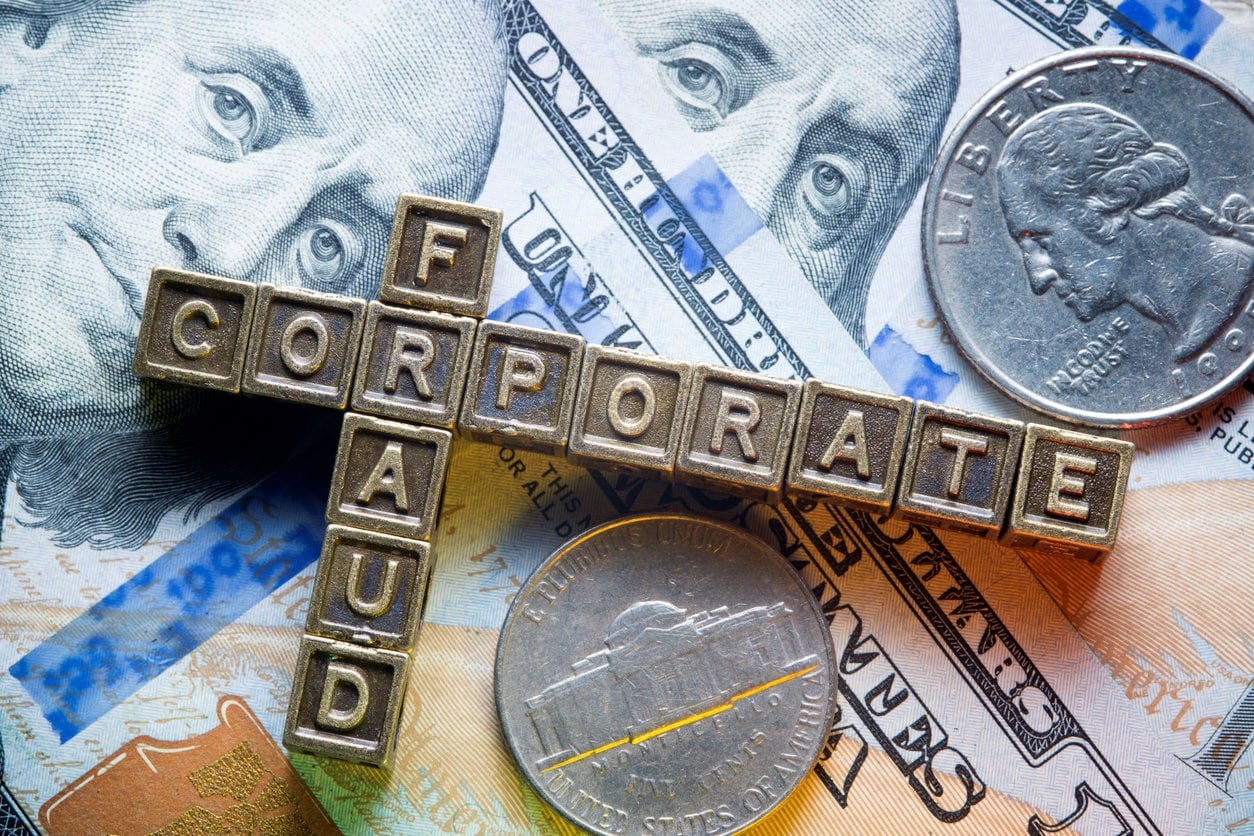- Home
- THE FIRM+
- Criminal Defense+
- CASE RESULTS
- AREAS WE SERVE+
- FAQ’s
- Blog
- Contact
AZHARI LLC BLOG
Jan. 26 2017
What Are “White Collar Crimes” in Illinois?

Posted By: Sami Azhari
Category:
Despite the many scandals and controversies that have threatened to stand in the way of Donald Trump’s presidency, he has made it to the Oval Office and will serve as the 45th President of the United States.
Some of those scandals included being accused of different types of fraud in relation to Trump University and the Trump Foundation, as well as other white-collar crimes. There are many different types of white-collar crimes, but all of them are typically committed for the same reason: financial gain. They involve unlawfully stealing money or goods from victims through deceit, force, or the unlawful gain of personal information.
Though they may not be as viscerally disturbing as many crimes of violence, white-collar charges are taken just as seriously, and in the most serious cases can lead to decades in prison and hundreds of thousands – or more – in fines.
This is true both in federal court and for Illinois – our state has some of the toughest penalties around for these types of criminal acts. So, what does our state label as a white-collar crime?
Common White Collar Crimes in Illinois
If you’ve watched any big movie about Wall Street, you’re probably familiar a number of different white-collar crimes. Some common white-collar crimes include:
- Fraud: There are dozens of different types of fraud charges alone. Fraud is an overarching term used to describe using deception or lies for monetary gain. Common fraud schemes include credit card fraud, wire fraud, mail fraud – even using a fake ID.

- Identity Theft: Technically, identity theft is another form of fraud, but has become so prevalent and well-known that most stories involving this type of crime refer to it specifically as identity theft. Quite simply, identity theft is the unlawful gain of someone’s personal or identifying information in order to commit a crime. One of the most common modern forms of identity theft is stealing someone’s credit card information to rack up a huge bill.
- Insider Trading: This is a form of securities fraud. Insider training involves “insiders” (employees, shareholders, or anyone who has confidential information about a company’s future financial plans) violating their agreement with the company and spilling the beans on that confidential information, typically to get ahead on making investments and secure big profits. If the insider uses false or misleading information in the same way, it is called “misrepresentation,” and is a separate white-collar crime.
- Embezzlement: This is a kind of theft that involves someone in a trusted legal or public position using that position for unlawful monetary gain. Examples of embezzlement include the United States Attorney for the Southern District of Illinois who embezzled $369,000 from a doctor’s office that he was managing. He is currently serving four years in federal prison.
- Tax Evasion: We all have to pay taxes. If you use deceptive methods in order to avoid taxes, you may be charged with tax evasion. These crimes are especially serious because they involve the IRS, and are typically – but not always – brought to federal court.
- Money Laundering: A lot of white-collar schemes contain multiple crimes. For example, money laundering is a separate crime that consists of the act of taking unlawfully gained money or goods and hiding it or investing it in order to make it look like it was gained lawfully. For example, if someone who has embezzled money uses that money to invest in real estate in order to conceal liquid assets, they have committed money laundering. Money laundering does not account for the crime of actually stealing money or goods, and is usually paired with other crimes when someone is charged.
- Bribery: You cannot pay someone to make a decision for you. Influencing someone, like a judge or public official, with monetary goods, is considered bribery.
How White Collar Crimes in Illinois are Charged
Such a wide range of white-collar crimes means, and each crime (as well as the money involved,) is charged differently.
Misdemeanors: Some white-collar crimes, like forgery of an academic degree, or use of a credit/debit card with intent to defraud, are misdemeanors. But once a few hundred dollars are involved in the theft, the charges are considered felonies.
Felonies: We have mentioned in past blog posts that theft of just over $500 can lead to felony charges. The new Cook County State’s Attorney is trying to change this by providing guidelines to prosecutors that the threshold for felony retail theft charges should be $1,000, but this does not change the actual law.
As the statutes are currently written, theft is a white-collar crime, and thefts of over $500 – whether we’re talking about identity theft, embezzlement, and so on – are felonies. For example, bribery is considered a class 2 felony.
Keep in mind that these are charges related to Illinois state court. If the case is taken to federal court (which is likely if the fraud involves the IRS, FBI, victims from other states, the U.S. Postal Service, and so on), the charges – and penalties – will be different. No matter where your case is tried, though, you can expect to face big fines and long jail sentences.
Don’t allow yourself to be intimidated by this, though. There are many defense strategies that can be used to combat white-collar charges, especially if you were involved as part of a grand scheme and you were unaware of what was happening to victims.
Contact an Experienced White-Collar Defense Attorney
Get in touch with an Illinois white-collar crimes lawyer today for more information on what your specific charges mean, what defense strategies may be most appropriate in your situation, and how you may even be able to get your charges dropped before going to trial.
About the Author
Sami Azhari has been working as a lawyer since 2007, after receiving his Juris Doctor from the Michigan State University College of Law. He has handled numerous state and federal cases, and is known throughout the Chicago and Rolling Meadows area for providing his clients with high-quality, skilled representation. He has been recognized by SuperLawyers, the National Trial Lawyers Association, and other notable organizations, and has spoken at a number of legal conferences.


























































